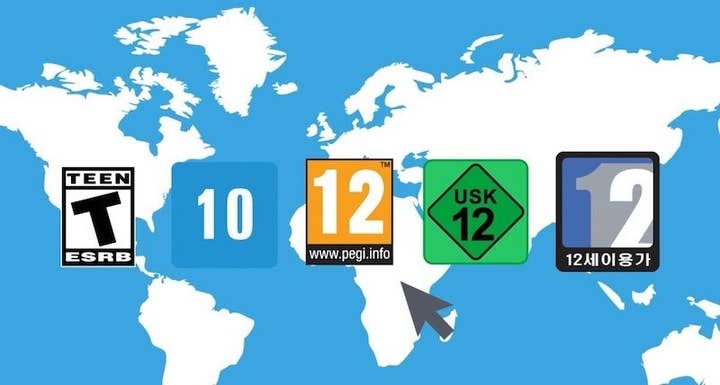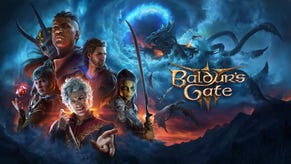The game rating problem you don't want, and how to mitigate it
GameDiscoverCo's Simon Carless looks at games being automatically pulled over IARC ratings and what developers should look out for when obtaining a rating
This article originally appeared in the GameDiscoverCo game discovery newsletter, which is written by 'how people find your game' expert and GameDiscoverCo founder Simon Carless, and is a regular look at how people discover and buy video games in the 2020s.
This has been a 'hidden' issue for a while, but The Colonists being the latest game to get pulled from the Switch eShop for age ratings issues allows us to talk about it more directly.
There have been related incidents -- there was also Megabyte Punch's experience from 2020, as well as SmileBasic 4 and Jamestown, to give just a few examples. I personally know at least three other devs who had this issue in recent months.
Basically: IARC, the global age rating system for digital games, is an amazing way to get your games approved to launch worldwide.
It's made things so much easier when it comes to getting ratings simultaneously approved -- for free, it used to cost money -- across a number of global industry-run or government-linked national ratings boards (PEGI, ESRB, etc, etc.)
(By the way, the excellent Digital Antiquarian game history blog was just talking about the original set-up of the ESRB in 1993, for those interested in the history of ratings.)
Anyhow, submitting to IARC involves self-rating your own games. And it's sometimes difficult to gauge how harsh you should be; devs and publishers will tend to drift towards lower ratings for their games, or perhaps forget a certain very specific scene/graphic is in it.
The problem: if a rating agency participating in IARC does a spot check on the game after release and finds something that bumps the age rating 'significantly,' then one or more of your game ratings (each region assigns its own rating to a game) may change enough to concern participating stores.
Most storefronts are relatively relaxed if this happens. But Nintendo -- a particularly family-friendly company -- will likely remove your game in the region where the rating jumped at least two age rating categories while you resubmit it to pass Nintendo lot check, which can take a couple of weeks.
In fact, Thomas Whitehead just did a lengthy and useful article on this IARC issue over at NintendoLife. Firstly, he explains how the rating process works: "You fill in a questionnaire about your game, and the system then tallies the results and provides you with the information and metadata for the ratings across all territories.
"This includes all of the descriptors, everything, and you can then have the ratings automatically applied to your eShop product. Of course this all takes place before release, but assuming you know the source material in detail it's a 10-15 minute job, which is remarkable.
And secondly, he makes a great point that's worth re-stating: "With text-heavy games, in particular, it's worth going through scripts carefully. My approach to age ratings was typically to overstate, go slightly higher if necessary rather than shoot low, so that sudden de-listings didn't happen."
But having dug into this more, it seems there are sometimes fine lines that can change ratings significantly. You only need to go up two 'rating notches' in a region to require Nintendo to re-certify.
And some regions -- particularly Russia, but also Australia and others -- can be very sensitive to even individual scenes.
Just reading (the English Wikipedia translation of) Russia's government rules, it appears you can jump from a 6+ to a 16+ rating just for having a single uncaught "image or description of an accident, catastrophe, illness, death without a naturalistic display of their consequences, which can cause fear, horror or panic in children." Or even a background depiction of alcohol that was missed.
And we've also heard stories of devs getting radically different ratings for the same product from different regional ratings boards. This is a natural part of having many different stakeholders that IARC is trying to wrangle. And the IARC is still doing sterling -- and largely unappreciated work. So thank you!
But this loophole can definitely mess with your game's launch. So keep an eye on it and be slightly harsh on your own games. And take particular care to look at some of the harsher government-run ratings boards and the difference between their ratings categories, to make sure you're not going to run into an issue later.
We contacted IARC for comment about this article, and a spokesperson replied with the following: "We always recommend that developers and publishers are as thorough and accurate as possible when submitting for a rating assignment -- whether that be via the IARC rating process or the traditional Long Form process -- to avoid any potential problems once the game is released.
"We understand that some developers and publishers may not have as much background submitting their game for a rating assignment, so we are always available to answer any questions about the process should they need additional information.
"It is worth mentioning that IARC has no input into specific storefront policies when ratings change due to incomplete or inaccurate disclosure during the ratings process."
So perhaps as developers, it would be worth talking to your Nintendo representatives. If they could consider being slightly looser on the rules around IARC re-rating, it seems like everybody would benefit.
Editor's note: This article was amended after publication to clarify the IARC's relationship with the individual ratings agencies.
GameDiscoverCo is a new agency based around one simple issue: how do players find, buy and enjoy your premium PC or console game? You can subscribe to GameDiscoverCo Plus to get access to exclusive newsletters, interactive daily rankings of every unreleased Steam game, and more.








